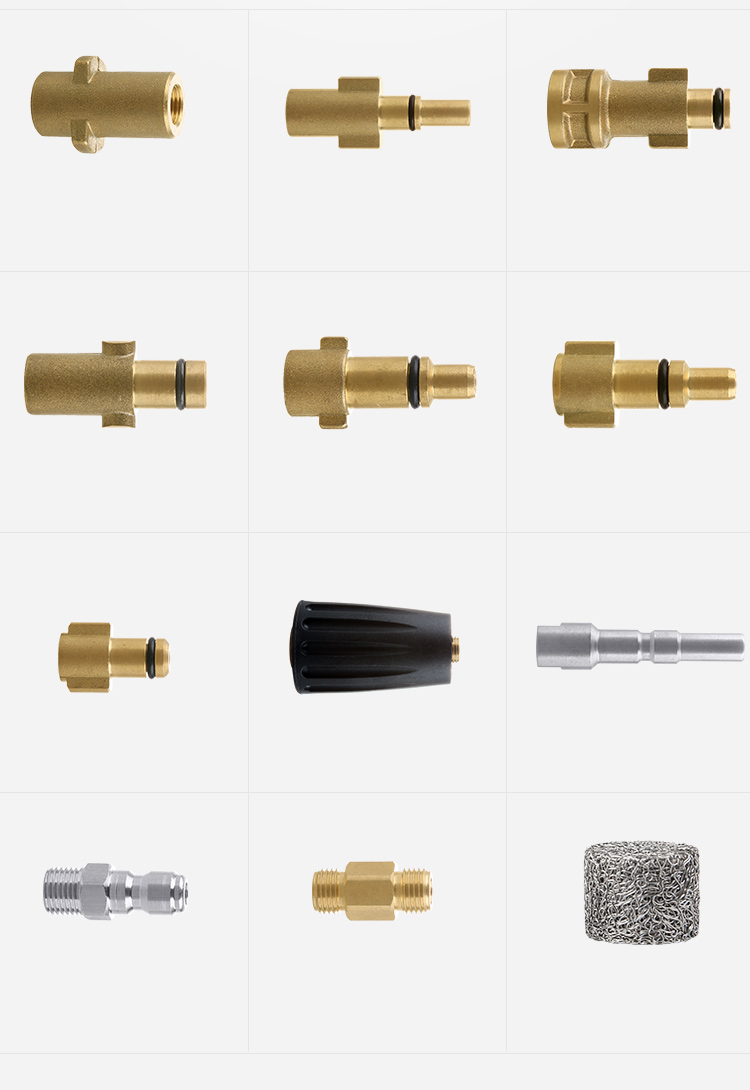Tenure and promotion: Are you willing to publish an article in an e-zine? (four)
2023-12-28 02:07:18
A View of an Academic Electronic Magazine Editor
Dr. John Cannon of the University of Nevada is the editor of the Electronic Journal of Science Education, a free online academic journal with peer review. He answered a series of questions and allowed him to express his opinions. details as follows:
What makes you first consider publishing electronic publications of academic works in your academic field?
Publication speed and review speed. The thoroughness of electronic review is much clearer and more comprehensive than the review of paper publications.
Is there any professional difficulty in achieving this decision (such as obstruction from a colleague, a mentor, and an authority figure in the academic field)? Please elaborate.
Of course, many of my colleagues (before my lifetime tenure and promotion approval) said: "That's enough! This electronic publishing is enough. Just look at paper magazines." Now, they have to eat up, at least for me. For my employer, my lifelong position and promotion issues are a test for the university promotion and tenure committee. It is said that the question they asked was "Does these magazines/articles have undergone peer review?" That's it.
A. E-zine's peer review process is as thorough as a paper magazine.
Strongly agree, completely agree!
B. Electronic publishing may destroy academic rigorous integrity.
Very objectionable. (Electronic publishing) will only make academic presentation more rigorous.
C. Articles published in electronic form should be incorporated into tenure positions and promote the assessment process.
Very much agree. This can be quoted in a passage of the Star Trek: The Next Generation TV series: “We are the nobles of the Bogue family. Resistance is futile. You will also be assimilated.â€
D. Issues relating to electronic forms of publication are more important to teachers seeking tenure than tenure teachers.
Very much agree. Unfortunately, this is true. However, as time passes, this situation will change.
For an electronic edition of an academic magazine editor, the answers to the above four questions are conceivable to some extent. The problem is that the view of the e-judge peer review process is more of a challenge to the popular opinion. , and provided an interesting counterpoint to many of the views reflected in this study.
Practicality Investigators at 31 universities in Florida and 31 teachers at the University of Central Florida may not be a meaningful statistical sample, but their point of view may explain the "scholarship". The traditional definition of ) is now being re-evaluated and even challenged in academia. Moreover, the quantitative data on the written statements submitted by university administrators and teachers in answering questionnaires can compensate for the lack of statistical samples in this survey. Some people may want to re-engage a revised longitudinal survey based on this study so that the data collection period is longer and able to apply to all university administrators and teachers within the Florida State University system (Florida SUS) (or to extract a representative Statistical samples) Surveys were conducted to obtain research results and interpretations like the ones in this study. The electronic version of academic journals (full or partial electronic versions) edited by other major academic fields may also provide some useful insights on the challenges of academic publishing and success issues through this approach.
What will be the result of further research in this survey? One commenter’s comments indicate that the topics discussed here are likely to promote further serious discussion about the Florida system or the higher education system outside Florida. The respondent wrote:
Although the credibility of some respondents is questionable, this way of collecting data is still very interesting. I hope that you and others can take the time to complete this survey. This may become a very important topic of discussion, especially for new teachers who want to accomplish academically.
The policy on electronic publishing, job promotion, and academic life-long position awards may soon lead to the negotiation of university faculty unions (such as the Florida Teachers’ Union) in order to determine the professional rights and duties of university professors. Whether or not this negotiation will become a reality, this study shows that the Florida State University System needs formal regulations for academic publication in electronic form. Respondents pointed out that at present, there are no provisions in this regard. Every time they encounter this problem, they must "difficulty in this issue." One respondent said that this policy omission "must be filled in time."
As the number of e-magazines increases and more teachers publish articles on them, the need to formulate a fair, fair and clear policy in this area will become even more urgent.
"This prestigious academic institution publicly acknowledges the academic status of electronic publications."
Units outside the Florida State University System also have such pressure. However, this study does not cover all issues that must be discussed. This study was conducted only for public universities in one state. What is the difference between private universities in Florida on the issue of publication in electronic form? National and private universities in the United States? What about other non-university institutions (such as government research laboratories and private industries that are also committed to academic publications)? The findings and related hints of this study can of course support the argument raised by Bowers in 1998: “Once a technology is applied to daily life, it is impossible to put the clock back into the cultural model before the application of this technology. "Electronic form of academic publication is posing a challenge to the academic community because it affects the rights of intellectuals. The solution to this problem is becoming an imperative for the academic community and its gatekeepers.
Of course, there are also universities and other higher academic institutions that acknowledge electronic publication of academic publications in the tenure and promotion assessment process. In fact, during the process of the literature review of this study, I found a related memorandum: 1999-2000 Academic Reappointment/Promotion Instructions (June 10, 1999).
Http://) This memorandum was issued by the vice president of academic affairs at Rutgers University in 1999 to the Dean, Dean of each college, Head of each department, and Head of each department. The memorandum specifically mentions that e-publications have the qualification for academic achievement and explain how to conduct the identification. For more information, refer to the relevant provisions of Article 3-6 of the Memorandum (http://).
Interestingly, this prestigious academic institution publicly acknowledges the academic status of electronic publications, and as far as I know, in Florida, those equally prestigious universities have not yet done so.
Recommendations for Future Research on the Florida State University System Many of the academic published variables on the electronic form in Florida systems can be explored in terms of tenure positions and improved eligibility and academic evaluation. The specific idea is as follows:
· Florida's ten state universities can be divided into three categories: comprehensive universities (four major undergraduate teaching units); second types of research units (three rapidly growing urban research universities) and first type research units (the state 3 most mature comprehensive research units). How do these university administrators classify their academic publication expectations based on university classification?
· Which colleges or universities are actively encouraging or hindering the submission of contributions to e-academic publications? What is the reason? What does this have to do with academic justice issues?
· Are university management staff and faculty employees different in recognition of the publication of electronic forms of academic papers on the issues of tenure and promotion decisions?
· Are tenure teachers and untenured teachers having different attitudes towards the validity of electronic academic publications?
· Do university managers from different disciplines, teachers without tenured posts, and general teachers have different attitudes toward the validity of electronic publications?
· Does the further exposure and familiarity with technology affect the type and scope of research that teachers are engaged in? Are those teachers who have less contact and familiarity with technology risking being unable to "catch up" with the latest developments in their respective disciplines?
Concluding Remarks If we want to improve the quality and relevance of academic rewards not only in the Florida State University system but also in the wider academic community, continuing discussions and active research on this issue in the 21st century academic community must continue. Even without further research, the Florida State University system still requires guidelines for the publication of electronic forms of academic publication, job promotion, and academic awards. The need for researchers’ further reliance on e-magazines, the increasing number of cyberspace titles, and the fact that they can no longer return to the world of paper publications only determine this. Scholars are faced with the struggle to find a publishing method that seems to work fast or choose a relatively slow (but probably more just) publication. This dilemma is not conducive to encouraging the dissemination of knowledge. Only a clear policy can change this difficult-to-define situation.
Dr. John Cannon of the University of Nevada is the editor of the Electronic Journal of Science Education, a free online academic journal with peer review. He answered a series of questions and allowed him to express his opinions. details as follows:
What makes you first consider publishing electronic publications of academic works in your academic field?
Publication speed and review speed. The thoroughness of electronic review is much clearer and more comprehensive than the review of paper publications.
Is there any professional difficulty in achieving this decision (such as obstruction from a colleague, a mentor, and an authority figure in the academic field)? Please elaborate.
Of course, many of my colleagues (before my lifetime tenure and promotion approval) said: "That's enough! This electronic publishing is enough. Just look at paper magazines." Now, they have to eat up, at least for me. For my employer, my lifelong position and promotion issues are a test for the university promotion and tenure committee. It is said that the question they asked was "Does these magazines/articles have undergone peer review?" That's it.
A. E-zine's peer review process is as thorough as a paper magazine.
Strongly agree, completely agree!
B. Electronic publishing may destroy academic rigorous integrity.
Very objectionable. (Electronic publishing) will only make academic presentation more rigorous.
C. Articles published in electronic form should be incorporated into tenure positions and promote the assessment process.
Very much agree. This can be quoted in a passage of the Star Trek: The Next Generation TV series: “We are the nobles of the Bogue family. Resistance is futile. You will also be assimilated.â€
D. Issues relating to electronic forms of publication are more important to teachers seeking tenure than tenure teachers.
Very much agree. Unfortunately, this is true. However, as time passes, this situation will change.
For an electronic edition of an academic magazine editor, the answers to the above four questions are conceivable to some extent. The problem is that the view of the e-judge peer review process is more of a challenge to the popular opinion. , and provided an interesting counterpoint to many of the views reflected in this study.
Practicality Investigators at 31 universities in Florida and 31 teachers at the University of Central Florida may not be a meaningful statistical sample, but their point of view may explain the "scholarship". The traditional definition of ) is now being re-evaluated and even challenged in academia. Moreover, the quantitative data on the written statements submitted by university administrators and teachers in answering questionnaires can compensate for the lack of statistical samples in this survey. Some people may want to re-engage a revised longitudinal survey based on this study so that the data collection period is longer and able to apply to all university administrators and teachers within the Florida State University system (Florida SUS) (or to extract a representative Statistical samples) Surveys were conducted to obtain research results and interpretations like the ones in this study. The electronic version of academic journals (full or partial electronic versions) edited by other major academic fields may also provide some useful insights on the challenges of academic publishing and success issues through this approach.
What will be the result of further research in this survey? One commenter’s comments indicate that the topics discussed here are likely to promote further serious discussion about the Florida system or the higher education system outside Florida. The respondent wrote:
Although the credibility of some respondents is questionable, this way of collecting data is still very interesting. I hope that you and others can take the time to complete this survey. This may become a very important topic of discussion, especially for new teachers who want to accomplish academically.
The policy on electronic publishing, job promotion, and academic life-long position awards may soon lead to the negotiation of university faculty unions (such as the Florida Teachers’ Union) in order to determine the professional rights and duties of university professors. Whether or not this negotiation will become a reality, this study shows that the Florida State University System needs formal regulations for academic publication in electronic form. Respondents pointed out that at present, there are no provisions in this regard. Every time they encounter this problem, they must "difficulty in this issue." One respondent said that this policy omission "must be filled in time."
As the number of e-magazines increases and more teachers publish articles on them, the need to formulate a fair, fair and clear policy in this area will become even more urgent.
"This prestigious academic institution publicly acknowledges the academic status of electronic publications."
Units outside the Florida State University System also have such pressure. However, this study does not cover all issues that must be discussed. This study was conducted only for public universities in one state. What is the difference between private universities in Florida on the issue of publication in electronic form? National and private universities in the United States? What about other non-university institutions (such as government research laboratories and private industries that are also committed to academic publications)? The findings and related hints of this study can of course support the argument raised by Bowers in 1998: “Once a technology is applied to daily life, it is impossible to put the clock back into the cultural model before the application of this technology. "Electronic form of academic publication is posing a challenge to the academic community because it affects the rights of intellectuals. The solution to this problem is becoming an imperative for the academic community and its gatekeepers.
Of course, there are also universities and other higher academic institutions that acknowledge electronic publication of academic publications in the tenure and promotion assessment process. In fact, during the process of the literature review of this study, I found a related memorandum: 1999-2000 Academic Reappointment/Promotion Instructions (June 10, 1999).
Http://) This memorandum was issued by the vice president of academic affairs at Rutgers University in 1999 to the Dean, Dean of each college, Head of each department, and Head of each department. The memorandum specifically mentions that e-publications have the qualification for academic achievement and explain how to conduct the identification. For more information, refer to the relevant provisions of Article 3-6 of the Memorandum (http://).
Interestingly, this prestigious academic institution publicly acknowledges the academic status of electronic publications, and as far as I know, in Florida, those equally prestigious universities have not yet done so.
Recommendations for Future Research on the Florida State University System Many of the academic published variables on the electronic form in Florida systems can be explored in terms of tenure positions and improved eligibility and academic evaluation. The specific idea is as follows:
· Florida's ten state universities can be divided into three categories: comprehensive universities (four major undergraduate teaching units); second types of research units (three rapidly growing urban research universities) and first type research units (the state 3 most mature comprehensive research units). How do these university administrators classify their academic publication expectations based on university classification?
· Which colleges or universities are actively encouraging or hindering the submission of contributions to e-academic publications? What is the reason? What does this have to do with academic justice issues?
· Are university management staff and faculty employees different in recognition of the publication of electronic forms of academic papers on the issues of tenure and promotion decisions?
· Are tenure teachers and untenured teachers having different attitudes towards the validity of electronic academic publications?
· Do university managers from different disciplines, teachers without tenured posts, and general teachers have different attitudes toward the validity of electronic publications?
· Does the further exposure and familiarity with technology affect the type and scope of research that teachers are engaged in? Are those teachers who have less contact and familiarity with technology risking being unable to "catch up" with the latest developments in their respective disciplines?
Concluding Remarks If we want to improve the quality and relevance of academic rewards not only in the Florida State University system but also in the wider academic community, continuing discussions and active research on this issue in the 21st century academic community must continue. Even without further research, the Florida State University system still requires guidelines for the publication of electronic forms of academic publication, job promotion, and academic awards. The need for researchers’ further reliance on e-magazines, the increasing number of cyberspace titles, and the fact that they can no longer return to the world of paper publications only determine this. Scholars are faced with the struggle to find a publishing method that seems to work fast or choose a relatively slow (but probably more just) publication. This dilemma is not conducive to encouraging the dissemination of knowledge. Only a clear policy can change this difficult-to-define situation.
Foam cannon is necessary one of Car Wash Tools. For SGCB foam gun updated several generations, not matter design, pictures, or function, the effect will be better.







Here is one foam gun for small area foaming, this foam gun work with air hose reel :

Different adapters can be choosed here, like Karcher,Hitachi, Lavor, Gerni, Nilfisk . You can get one what you wanna.

If you wanna know more about it, pls contact with us.
foam cannons,fome cannon, auto detail supply,car wash chemicals,best car washing supplies,car cleaner supplies,snow foam,Foam Gun and Foam Cannon Kits
SGCB COMPANY LIMITED , https://www.sgcbautocare.com